AI is everywhere
What started as geek-fest chatter at a LAN party is now a topical conversation piece on your daily commute.
(Well, if people actually spoke to each other on the way to work then it would be.)
Everyone is at it. In fact, even the old lady at the post office knows what Artificial Intelligence is.
But the question on every digital marketer’s lips is:
“How do I get my cat to stop sitting on my keyboard?”
Oh, no. Not that one. The other one:
“How AI will impact the world of SEO?”
That’s what we’re going to explore today. But before we dive in, a little disclaimer.
This article is already out of date. Sorry. That’s because AI is changing at light speed. Quick, let’s catch up.
What is AI?
Yes, yes, I know. I just said everyone knows what AI is. BUT, for those who aren’t quite sure, let me explain.
AI stands for Artificial Intelligence. It is a type of computer program that can learn and make decisions on its own.
AI programs are trained on large amounts of data, and they can use that data to learn how to perform tasks.
It’s like a really smart robot that can do things that people can do. For example, driving cars, playing chess, answering questions, or editing code.
It can even be creative: Writing poetry, or creating stunning imagery.
But AI is still learning, and sometimes it makes mistakes.
Where did AI begin?
Scientists have been on the case for decades. And you might be surprised to know that AI has been in our daily lives for quite some time.
- Spam filters
- Fraud detection
- Voice assistants (Siri, Alexa, etc)
- Recommendation engines (Netflix etc)
- Navigation tools
- And even self-driving cars
OK, self-driving cars aren’t quite mainstream. Yet. Self-parking, perhaps.
But in 2010, Google unveiled its self-driving car, and in 2016, Uber launched its self-driving car service in Pittsburgh. It won’t be long. Especially in urban areas.
It does make me wonder if our young children will ever need to pass a driving test.
Anyway, the thing that seems to have catapulted AI into the public eye is ChatGPT.
What is ChatGPT?
ChatGPT is an AI chatbot developed by OpenAI and released in November 2022.
ChatGPT can be used to have conversations with humans, answer questions, and write different kinds of creative content. Since its release, it’s fair to say it has rocketed in popularity and become rather disruptive.
The platform currently has over 100 million users. And the website currently generates 1 billion visitors per month.
So, is Google dead?
The rise of ChatGPT made some people suggest that Google’s days were numbered.
But Google has its own AI chatbot, Bard.
Google was slower to release Bard because they didn’t feel it was ready.
Executives were concerned the company’s reputation could take a hit if the AI created biased, toxic, or inaccurate statements.
In fact, in February 2003, Google’s parent company, Alphabet, lost $100 billion in market value after Bard made a mistake in a launch ad.
Bard was asked “What new discoveries from the James Webb Space Telescope can I tell my 9 year old about?”
Bard’s answered that the telescope took the “very first pictures” of an exoplanet outside our solar system.
However, this is not correct.
A reminder that AI models are still under development and can make mistakes.
But perhaps also a red flag for future dependency.
I mean, on this occasion, many astrologers raced to point out the mistake.
But what do you think that 9 year old boy would’ve done?
Probably believed every word.
AI image generation
We are honing in on the area of ‘Search Marketing’ today and so the tech we’re most interested in concerns language models, search engines, and word-based content.
That said, we need to show some respect for the progress being made in AI image generation.
AI image generation is a type of artificial intelligence that can create images from text descriptions and/or image input.
There are a number of different AI image generation models available.
- DALL-E 2 (by OpenAI)
- Imagen (Google A)
- Midjourney (Dream)
- Craiyon (Wombo)
A bit like AI copy, the results are incredible (if a little unpredictable at times).
Want to see something incredible? This is also AI…
How has AI affected user behavior?
People are still working it out. But chatbot usage is definitely gathering momentum.
Many people already constantly have a chat window open throughout their day.
People are becoming accustomed to dealing with virtual assistants for customer service.
Continuing on from voice search, we’re seeing trends towards more conversational searches. More on this below.
In summary, we’re growing used to getting instant, personalized results for very specific needs.
How might AI affect SERP real estate?
At Google I/O (Google Developer’s Conference), new generative AI capabilities were unveiled in Google Search.
Google Search will soon give an AI generated answer first, along with the ability to open up further dialogue. To basically ‘chat’ with it about the results.
What about Bing?
It’s gonna be ok. In January 2023, Microsoft (the folks behind Bing) invested $10 Billion into OpenAI (The folks behind ChatGPT).
Seizing the opportunity, Microsoft has revolutionized its Bing search engine and Edge browser by launching an AI-powered experience with ChatGPT features
Time will tell. But potentially the sites looking to take visitor hits could be:
- News sites
- Factual sites
- Review sites
- ‘Things to do’ sites
- ‘How to do’ sites
You’ll no longer have to visit websites to research the best places to camp, or museums to visit.
You won’t have to read an article about the best bluetooth speakers under £200.
Or the best burger joints in Bloomington, Indiana. Shame.
The featured snippet will likely disappear. This means the top source no longer gets the attention it was commanded. Ouch.
OK, and so the winners?
Google. OpenAI. Bill Gates. Oh, and the handful of actual businesses or websites they take along for the ride.
See… it looks like each of the suggestions has a link to the actual ‘thing’.
The best bike, or best holiday park. If your website or product is one of the chosen few, then that is A LOT of visibility.
Is SEO going to become AIO?
How will the emergence of AI chatbots in search marketing impact our businesses?
What is going to happen to all those helpful articles we’ve been writing to encourage organic traffic?
Are they to become merely training guides for bots?
Not necessarily. There is hope, my friends. Let me give you a scenario.
You ask ChatGPT for a list of the top ‘hidden gems’ to visit while in Maui.
Eager to please, it gives you a dozen results. (I guess they’re not so ‘hidden’ after all).
Question. What would you do next, now that you have your list?
Erm, Google each of them perhaps? For richer information, more context, more of a ‘feel’.
Local search is here to stay
For now at least
After all, you might expect ChatGPT to one day compile a list of the best restaurants in a given town, or Bard to suggest the best local beaches.
But it’s more difficult to imagine either of those tools finding you a plumber. Or a vets ‘near me’.
Google’s map pack (or local pack) has that covered, and it is likely to be a while before significant changes impact the local SEO framework.
For more about ranking locally, check out these ways to step up your local search presence.
And another thing…
Can I get a second opinion?
What if you wanted a second opinion, or ten?
I don’t know how you feel, but I’ll often seek multiple perspectives. Not one. Not just the top three.
Trust issues are understandable. One Google worker even called Bard a ‘pathological liar’.
It’s clearly early days and the disclaimers are front and center. And of course, the risk depends on the search query.
But AI models by definition will always be learning.
Given the unpredictability of these apprentice sages, how long before you trust them enough to accept one single answer?
Would it be unreasonable to be cautious about the integrity of a single answer from one source?
Do you think you would be comfortable with this? Or might you prefer to hear a variety of opinions, whether or not there is a consensus?
So are SEO’s days numbered?
Nope. Far from it. Chatbots need to get the information from somewhere.
AI isn’t some kind of savant. It just reads a lot. Pays attention.
And so, I’d go as far as to say SEO is even more important than ever.
Your website will be explored like never before, to find richer content than ever before.
To be able to provide suggestions and recommendations on your products and services.
“What shoes go with this jacket for this event?”
AI will scour your website for every shred of information in order to provide a credible response.
Help it out.
- Describe everything.
- Contextualize everything.
- Label everything.
- Structure everything.
- Organize everything.
- Optimize everything.
Plus, the articles and expertise we all provide are essential to help feed the beast.
Given that assumption, it’s likely other avenues will emerge in order to motivate and reward creators.
In the meantime, here are 6 tips for an AI-infused SEO battle plan.
6 AI-inspired SEO tips to help your business stay ahead
#1 Perform technical SEO on your existing content
You need to make it as easy as possible for the information on your site to be considered relevant.
Optimize all of your existing content so that it is structured, organized and marked-up correctly.
Want to know more about Technical SEO? We have a free online webinar you can watch.
#2 Perform off-site SEO
Work on building the credibility and authority of your website through activities such as link building and citations.
Raise the profile of your business with above the line activity that positions you as an expert.
This kind of activity (and more) can help you appear like a trusted source and you’ll be much more likely to rank among the suggested results.
#3 Optimize for voice search
“Hey Google? What percentage of people prefer using voice search rather than typing their query?”
“Approximately seven out of ten consumers prefer to use voice searches”
“OK, great. What’s the weather like tomorrow?”
It’s a fact that voice search is becoming increasingly prevalent. And above we explored how new search behavior encourages conversational searches.
By tailoring your content to voice search patterns, you can increase your chances of getting a mention in voice search results. But you’ll also set yourself up nicely for chat too.
#4 What about using AI as a keyword research tool?
There is no substitute for rolling your sleeves up and performing keyword research the traditional way.
You understand your business, your area, your customers, and your niche better than any AI tool ever will. And so you’re in the driving seat to assess relevance and opportunity.
That said, both ChatGPT and Bard provide another couple of free tools at your disposal, to perform research, check search volume, look for trends, and discover queries you might not have thought of previously.
#5 And can you use AI to improve web content?
You can use AI to improve the quality and relevance of your content. But don’t use it to create content from scratch.
Just like Google, your customers are looking for unique, compelling and highly relevant results. AI-powered tools can help you to identify the interests of your users and deliver content that is relevant to them.
AI can be a great tool for generating ideas, researching topics, and fixing errors. It’s a useful research tool. A starting point. Not a replacement for human creativity, advice, emotion, and compassion.
#6 Stay up to date
AI is constantly evolving, so it is important for businesses to stay up-to-date on the latest trends.
You could regularly ask an AI chatbot! But if that’s all a bit ‘Mirror, mirror, on the wall’ for you, then more conventional options exist. Such as subscribing to industry publications, following expert YouTube channels, and checking-in with thought leaders on social media.
SEO is all about managing change, so stay nimble. You might need to adapt the way you approach content, link building, reporting, and other aspects of SEO in order to get optimal results.
It could get bumpy
A lot is changing right now. We will have to see how it all pans out. But don’t worry, we have a team of geeks experts with their collective ears to the ground, ready to navigate the search landscape and make the most out of the tools available.
If you’d like to put together a plan to drive extra traffic to your website, get in touch.
Call us at Nettl of Cuyahoga Falls!

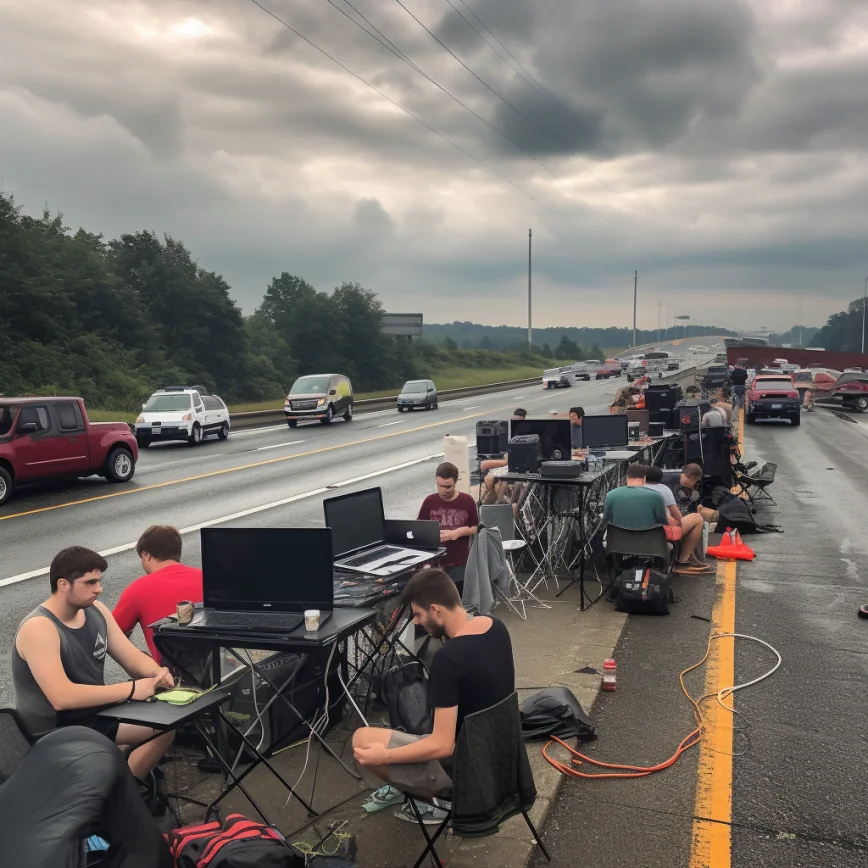
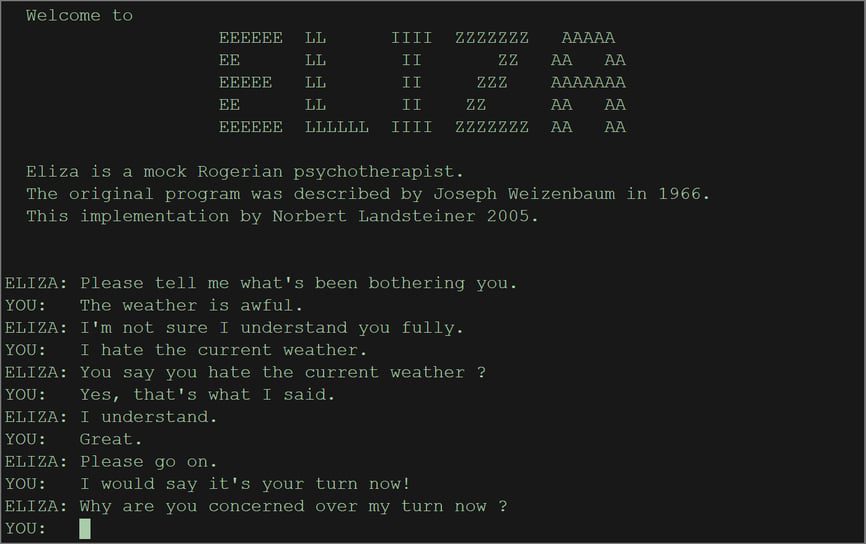
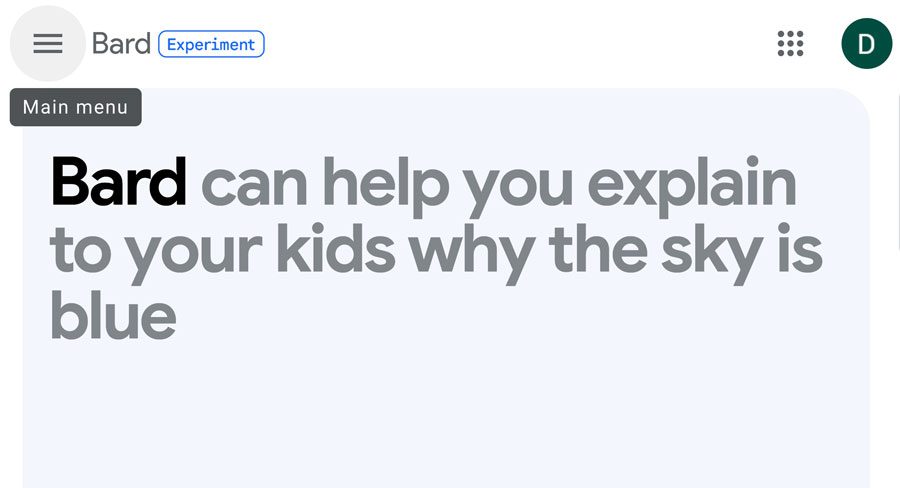





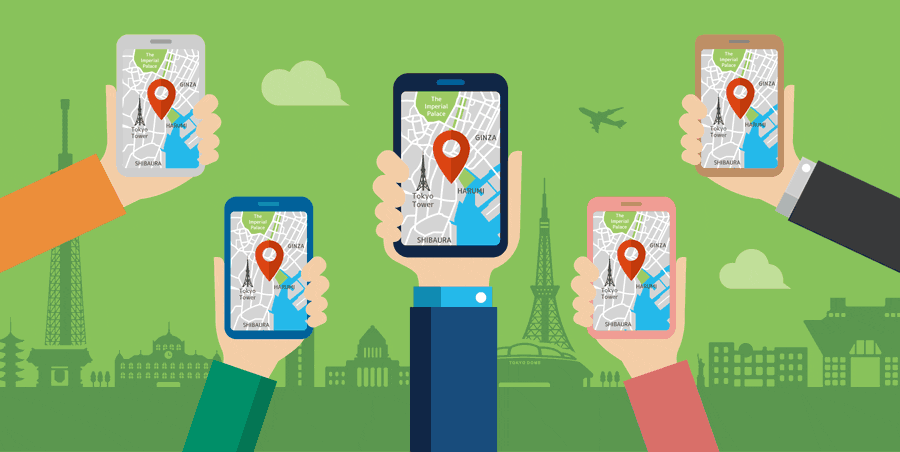






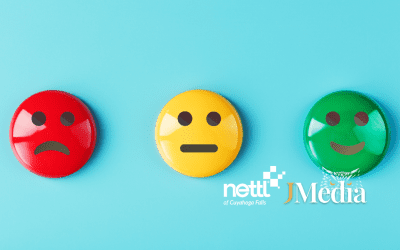


0 Comments